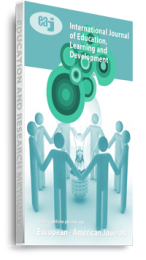The Socio-Economic Status (SES) of families is an important determinant of child learning outcomes. The current study contributes to the debate on SES on learning outcomes. As part of a longitudinal study on teaching effectiveness in Ghana, this paper examines the effects of SES on child academic performance in mathematics. A representative sample of 73 primary schools in Ghana was selected and written tests in mathematics were administered to all grade 6 students of the school sample both at the beginning and end of the school year 2013–2014. Data on student background factors were also collected. Our analytical techniques (i.e., multilevel modelling) take into account the hierarchical structure of schools (i.e., students nested within classes, and within schools. The factors that stood out more clearly as important for achievement were prior knowledge in mathematics, mothers’ educational level and fathers’ occupational status. Implications of the findings are drawn.
Keywords: Child Socio Economic Status and learning achievement

